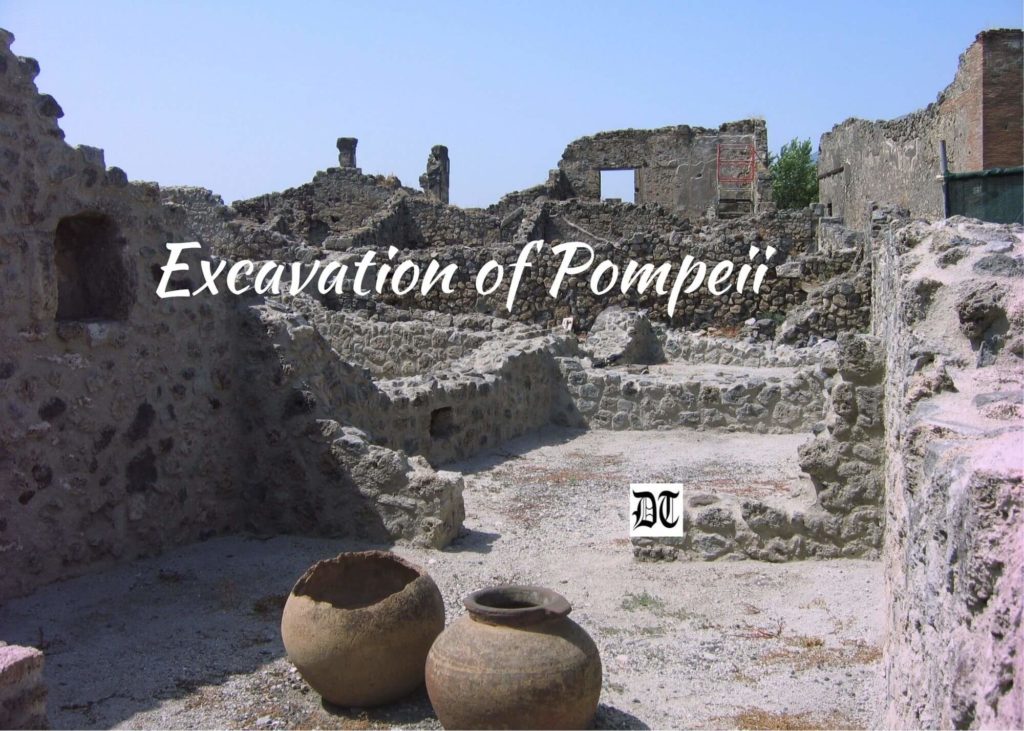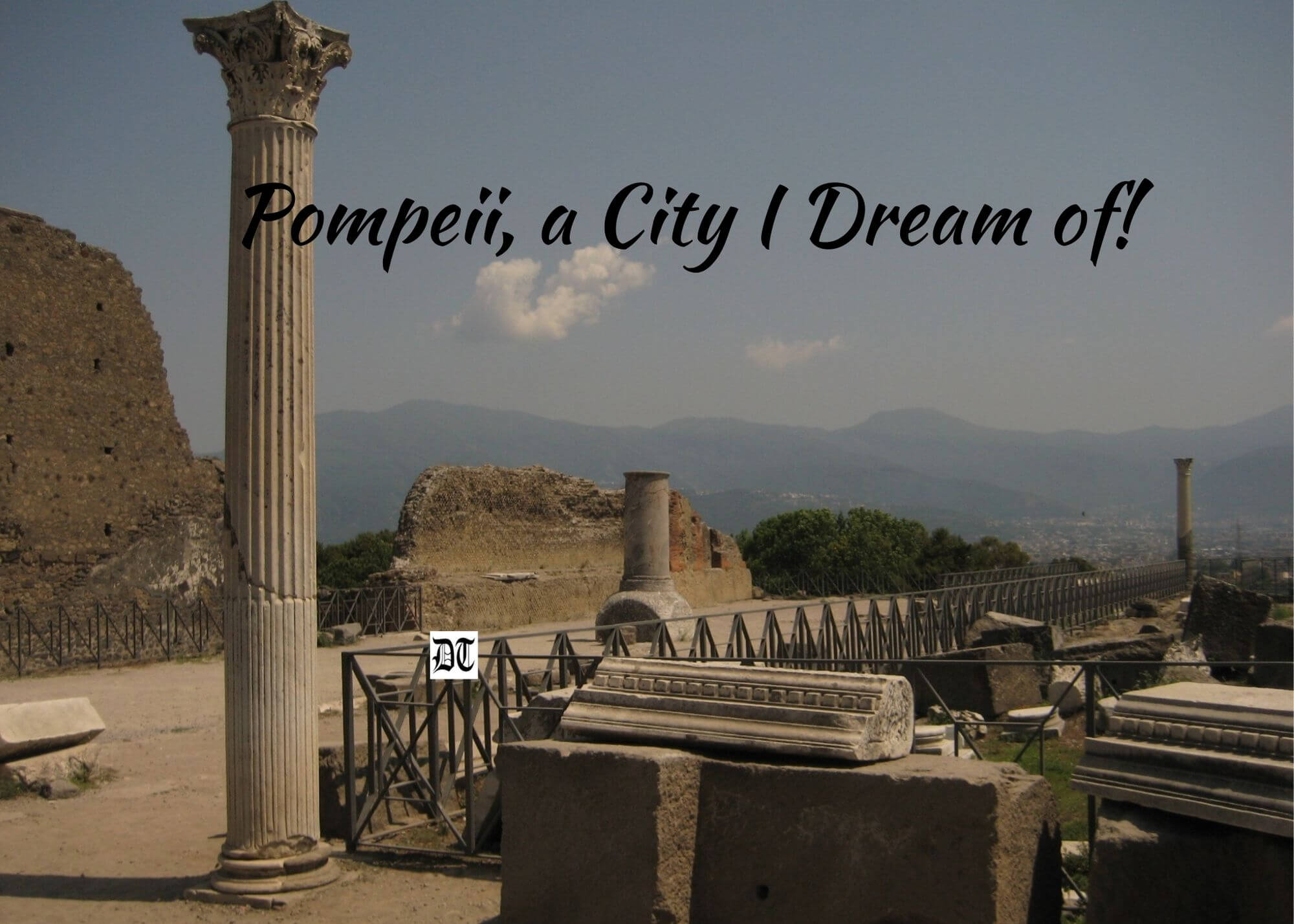Dr. Roopali travels several millennia, telling us about the destruction of Pompeii in 79 AD. From the pages of an encyclopedia, through history, she tells us about the pandemic, a contemporary reality in the 21st century. An exclusive for Different Truths.

There is a city we grow up in. A city we may have never visited, yet only heard of and seen in one’s technicolour mind. For me it has always been Pompeii. Since I was a child, I have visited and revisited this ancient city repeatedly. In those colourful glossy pages of Lands and Peoples Encyclopaedia my father gifted me on my birthday.
The many stories of a city preserved as it was on that horrific day. I travelled through the pages and pictures. And it was as if I had been there and known the people intimately.
Pompeii was a famous ancient city in southern Italy. Located southeast of Naples in the Sarno plain at the base of the volcano Mt. Vesuvius. Founded at the end of the seventh century BC, the town of Pompeii was built on a lava flow. This is the city, which ‘froze’ in the heat of molten lava as Mt. Vesuvius spewed fire and brimstone.
Pompeii was a famous ancient city in southern Italy.

Excavation of Pompeii
The ancient city, Pompeii, was excavated in the 19th and 20th centuries. And its excellent state of preservation gives us invaluable insight into daily life. The sheer volume of data this presents makes it one of the richest archaeological sites in the world for scholars.
It flourished in trade and commerce in expensive products. But it turned to ashes.
It was the morning of 24th August 79CE. It was a rich bustling city of wealthy villas with wall hangings, murals, and marble statues. It flourished in trade and commerce in expensive products. But the city turned to ashes. Just like that.
The volcano had begun to rumble. As the day progressed, fire and smoke had bellowed from the roaring volcano. Like a fireworks display, a massive explosion blew off the top of Mt. Vesuvius.
Scientists have since calculated that explosion to be 100,000 times greater than the nuclear explosion in Hiroshima, in 1945.
Scientists have since calculated that explosion to be 100,000 times greater than the nuclear explosion in Hiroshima, in 1945. By night, a cloud of volcanic ash had buried the whole city. Asphyxiated, baked and buried. People, animals and structures were lost forever.
My poem recreates that day.
Pompeii AD 79
Apollo creator and healer of pandemics stood sentinel as Vesuvius the Furious left untouched with fire and brimstone the flaunting figure of insane tyranny.... The Third Emperor of Rome Gaius Julius Caligula! Tourists walk about Peering staring looking at nothing ... A chill wind blows across the meandering once blue river Sarno as it slowly heavily flows past carrying Pompeii AD 79 The fiery orange molten lava slithered down the mountain side like a greedy cunning snake Its forked tongue moving fast throwing black bits of burning red coal gestating for a millennium and more in the earth’s intestines. The abandoned table with remnants of a last meal of figs, peaches, olives garlic and millet bread. The sudden contorted bodies, the skeletons scattered the flesh boiled and peeled pink, skulls exploding drowning the roar of the Vesuvius spewing cumulus smoke and stones and the terrible orange heat. A bustling city and two thousand of them baked and fried. The walls still radiating red. The sculpted figures frozen white in the heat of lava and raining funereal ash. Weeping sorrowful witnesses the sarcophagus like wine jars now stand huddled in a row. The Gladiators left behind their armour of strength and courage and vaporised even before the thunderous crowds could cheer them on. Lava shocked brick walls stand still and the haunted streets are peopled by ghosts at night. The Sarno river filled with acrid gaseous of industrial sewage Now flows slow and heavy to Naples and the innards of the Earth keeps boiling again waiting to explode.
Our total disregard for the environment leads to the conclusion of the poem. A note of warning on the river Sarnus, modern day Sarno, considered to be Europe’s most polluted river.
Buried in Lockdowns
We are buried again. This time, in Covid-19 pandemic lockdowns. Our cities are closed shut. We live a buried life like raccoons, waiting for Corona to explode again, and again.
Pompeii today is a deserted city. Digital access can take you on a virtual tour as a whole world unfolds itself. I no longer imagine that day. I can now see it like a traveller, sitting here in my padlocked home.
Visuals by Different Truths






 By
By


 By
By
Fantastic write ma’am God bless
Since my childhood I wanted to know about Pompeii. Thanks for sharing this beautiful write up.